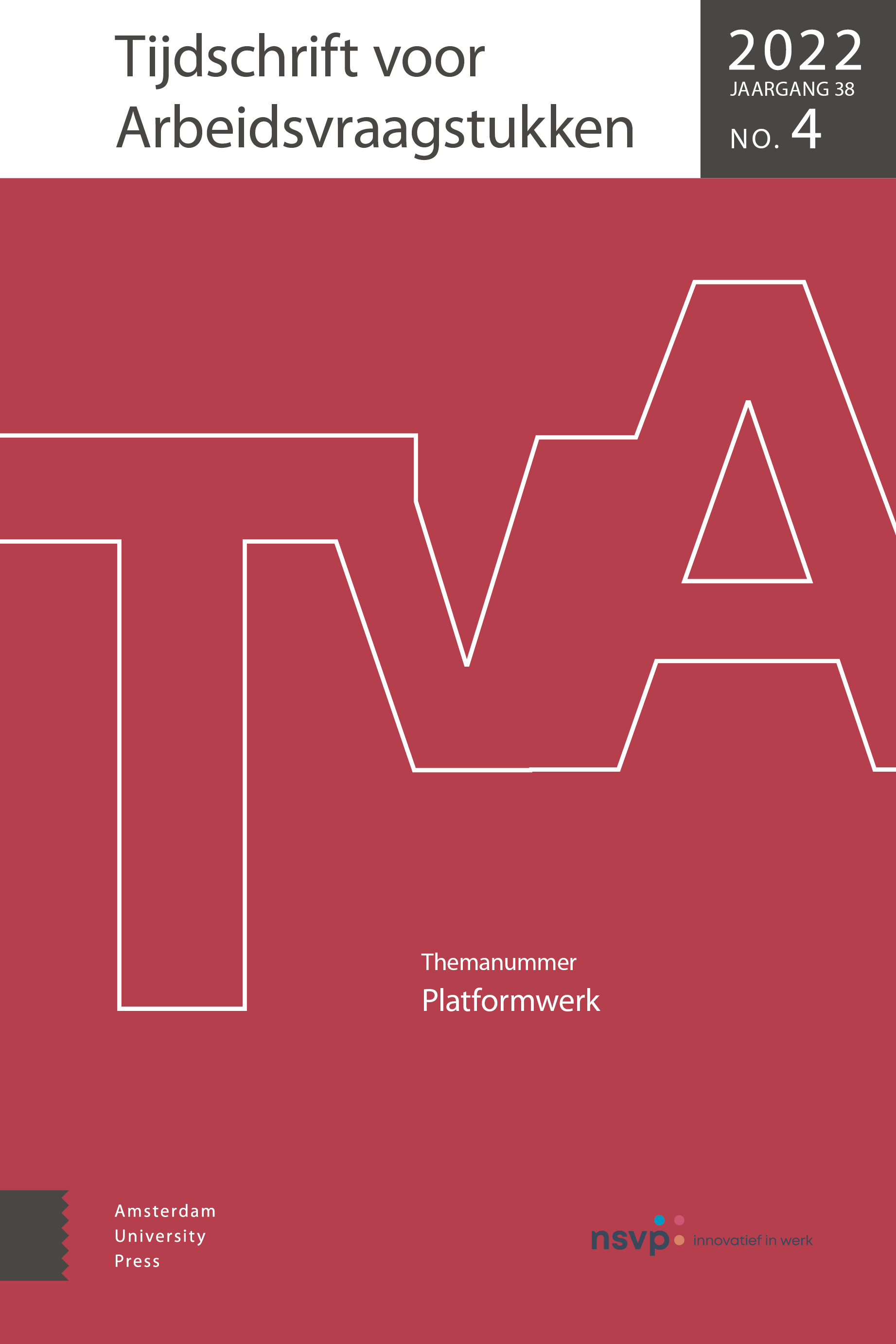
Full text loading...
De platformeconomie is in de afgelopen jaren snel gegroeid en verwijst als relatief nieuw paraplubegrip naar verschillende werkfenomenen. Het doel van dit artikel is om een overzicht te bieden van de uiteenlopende benaderingen van platformwerk, inzicht te geven in de vooronderstellingen die deze benaderingen hanteren en aandacht te vragen voor onderzoek naar verwante verschijnselen. Met behulp van een scoping literatuuronderzoek (n = 319) kan onderscheid gemaakt worden tussen bredere en nauwere definities van platformwerk op basis van locatie, tijd, compensatie en de vraag of de platformeconomie een voortzetting of een vervanging is van de deel- en kluseconomieën. Vaak wordt voorondersteld dat het bij platformwerk gaat om betaald werk dat op of via een arbeidsplatform plaatsvindt, maar bredere benaderingen betrekken meerdere typen platformen en typen werk. De enige constante is de bemiddelingsrol van digitale platformen. Door onderscheid te maken tussen platform en kluswerk wordt duidelijk dat platformwerk niet uniek is in de fragmentatie van arbeid, de resulterende werkonzekerheid en de bemiddeling tussen vraag en aanbod.

Article metrics loading...

Full text loading...
References


Data & Media loading...

